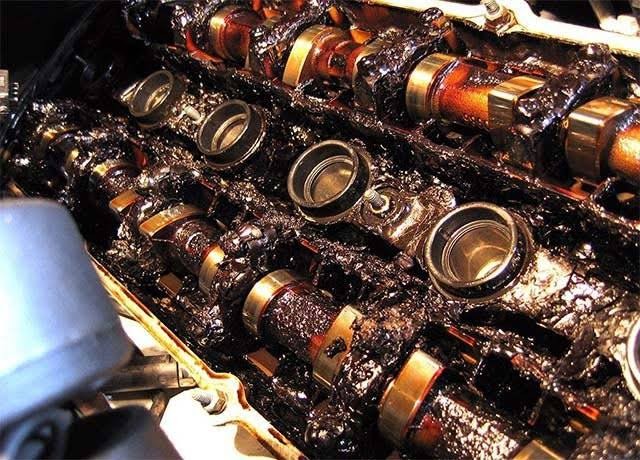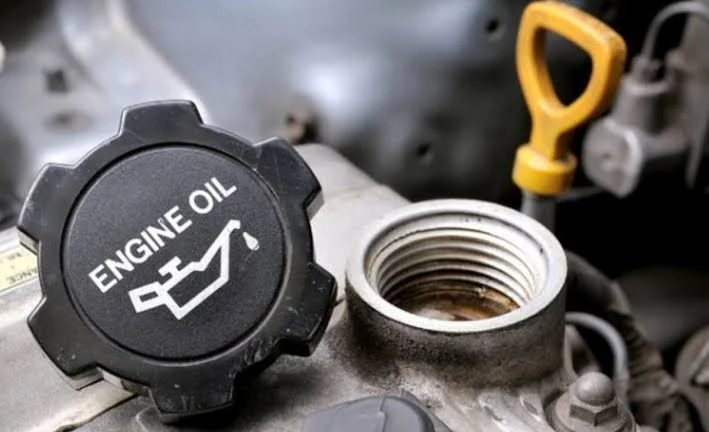One in five Americans is currently behind on their oil changes. This statistic from CarFax reveals a troubling trend that costs drivers billions annually. As someone who has witnessed countless preventable engine failures over my decades in automotive repair, I can tell you this: skipping oil changes is the fastest way to turn a $50 service into a $5,000 nightmare.
Your engine oil works harder than you might realize. Every minute your engine runs, this vital fluid performs multiple critical functions while enduring extreme temperatures and pressures. When you neglect to change it, you're essentially asking your engine to run a marathon while breathing through a straw.
The Science Behind Oil Breakdown
Engine oil doesn't simply get "dirty" over time. It undergoes molecular breakdown. Fresh oil contains carefully engineered additives that neutralize acids, prevent foam formation, and maintain proper viscosity. After thousands of miles, these additives become depleted, leaving behind a fluid that can no longer protect your engine effectively.
The oil begins accumulating contaminants: microscopic metal particles from engine wear, combustion byproducts, and environmental debris. This contaminated oil transforms from a protective lubricant into an abrasive slurry that accelerates wear on every moving component it touches.
What Actually Happens Inside Your Engine
When oil changes are neglected, three destructive processes accelerate simultaneously:
- Sludge formation: Old oil combines with contaminants to create thick, tar like deposits. These deposits clog oil passages, starving critical engine components of lubrication. I've seen engines where sludge buildup was so severe that oil couldn't reach the top of the engine, causing complete valve train failure.
- Increased friction: As oil loses its lubricating properties, metal components begin grinding against each other. This friction generates excessive heat and causes rapid wear. Bearings, pistons, and cylinder walls suffer irreversible damage.
- Thermal breakdown: Overheated oil loses viscosity and can no longer maintain proper pressure. Oil pumps struggle to circulate the degraded fluid, creating hot spots throughout the engine.
The Financial Reality
The numbers tell a stark story. According to recent automotive repair data, catastrophic engine damage from neglected oil changes costs between $4,000 and $10,000 to repair. Compare this to the $40 - $75 cost of a regular oil change, and the mathematics become crystal clear.
A study by the Car Care Council found that 22% of vehicles have low or dirty engine oil. These same vehicles are three to nine times more likely to require major repairs compared to properly maintained ones.
"My car will get me home," drivers often say when their oil change is overdue. This false confidence has cost more vehicle owners their engines than any other single factor I've encountered in my career.
The Progressive Stages of Damage
Engine damage from neglected oil changes doesn't happen overnight. It follows a predictable pattern:
- Stage 1 (5,000 - 10,000 miles overdue): Oil becomes thick and contaminated. Engine noise increases, fuel economy drops noticeably. At this point, damage is minimal and reversible with immediate service.
- Stage 2 (10,000 - 15,000 miles overdue): Sludge begins forming in oil passages. The oil warning light may illuminate intermittently. Engine performance becomes sluggish, especially during cold starts.
- Stage 3 (15,000+ miles overdue): Critical engine components begin failing. Valve lifters stick, timing chains stretch, and bearing surfaces show scoring. At this stage, major repairs become inevitable.
- Stage 4 (Complete oil breakdown): Total engine seizure occurs. Pistons weld themselves to cylinder walls, connecting rods bend or break, and the engine becomes completely inoperable.
Hidden Consequences
Neglecting oil changes affects more than your engine. The ripple effects include:
- Warranty voidance: Manufacturers require proof of regular maintenance. Skipped oil changes can void your entire powertrain warranty, leaving you responsible for all repair costs.
- Resale value: Maintenance records significantly impact vehicle value. A car with spotty oil change history sells for thousands less than one with complete documentation.
- Safety risks: Engine failure rarely happens at convenient times. Losing power on a busy highway creates dangerous situations for you and other drivers.
The Modern Oil Change Reality
Today's engines and oils have evolved significantly. While older vehicles required oil changes every 3,000 miles, modern synthetic oils can safely extend intervals to 7,500 or even 10,000 miles under normal conditions. However, this extended capability doesn't mean you can ignore the schedule entirely.
"I use synthetic oil, so I don't need to change it as often," is a common misconception. While synthetic oils last longer, they still break down and accumulate contaminants. The extended intervals are calculated based on specific driving conditions and regular monitoring.
Prevention Strategies
Protecting your engine requires a systematic approach:
- Follow manufacturer guidelines: Your owner's manual contains specific intervals based on extensive testing. These recommendations account for your engine's design and expected operating conditions.
- Monitor oil quality: Check your oil monthly using the dipstick. Fresh oil appears honey-colored and flows smoothly. Dark, thick, or gritty oil needs immediate attention.
- Track mileage: Keep detailed records of oil changes, including date, mileage, and oil type used. This documentation proves invaluable for warranty claims and resale value.
- Consider driving conditions: Severe conditions like frequent short trips, extreme temperatures, or dusty environments may require more frequent changes than the standard interval.
The choice is ultimately yours. Spend $50 every few thousand miles on preventive maintenance, or risk spending thousands on emergency repairs. As I tell every customer: your engine doesn't care about your budget, but it will certainly impact it if you ignore its needs.
Regular oil changes represent the single most important thing you can do for your vehicle's longevity. This simple maintenance task protects your investment, ensures reliable transportation, and provides peace of mind every time you turn the key.


Comments (0)
Please login to join the discussion
Be the first to comment on this article!
Share your thoughts and start the discussion